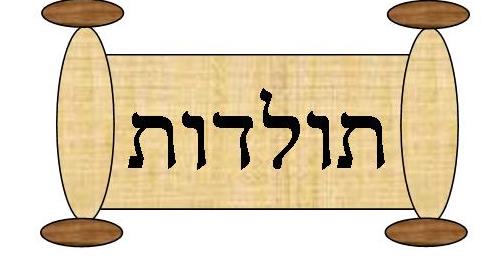Rebecca, Isaac’s wife, finally became pregnant after many years of being barren. With regard to her pregnancy, the Torah states that the children were struggling within her womb. She therefore prayed to God and said: “If so, why am I thus?” (Genesis 25:22), or in Hebrew – “Eem ken, lamah zeh anochee?” Hashem answers Rebecca in the following verse in the Torah and states: “Two nations are in your womb; two regimes from your insides shall be separated; the might shall pass from one regime to the other, and the elder shall serve the younger.” Although this verse has been explained by many, the Or Hachayyim believes that there is still no truly satisfactory answer. God responded to her fear that she would miscarry by explaining to her that there was nothing medically wrong in her womb but that she was carrying two instead of merely one fetus. Normally, when a mother expects twins, the two fetuses get along inside the womb. In Rebecca’s case, they did not. Hence, she experienced the feeling of being crushed. She did not merely carry twins, but each one was destined to become a nation with very different characteristics from one another. Not only would each one be a king in his own right, but these respective nations would endure for thousands of years. All of this would not contribute to her feeling of being crushed were it not for the fact that these twins did not conform to the usual patterns of twins. When God explained that “they will be totally separate already while still inside of you,” this meant that they would not only be separate inside of Rebecca, but their being separate would continue AFTER they were born. The Or Hachayyim continues to explain that an additional factor preventing the two peoples from dwelling together in harmony: each one will derive its strength from the defeat of the other. He cites a similar concept in a statement from Megillah 6 that the city of Tzor attained its true prominence only through the fall of Jerusalem. Seeing that each nation therefore anxiously awaits the downfall of the other, there is no hope that they will live together in brotherly harmony.
Prior to the Torah recording the birth of Jacob and Esau, it tells us that Rebecca “completed the days of her pregnancy” (25:24). Why would the Torah find it necessary to tell us this? Torat Moshe comments that in Berachot 5, it states that whereas in this case the nine-month pregnancy was completed, in the case of Tamar and her twins, it was not. Tamar’s twins were born after a pregnancy of six months and 3 days (Genesis 38:27). We need to understand why Rebecca who suffered such discomfort had to complete nine months of her pregnancy, whereas Tamar was spared almost one-third of her pregnancy. The Midrash tells us that if Rebecca had not exclaimed why am I alive, an exclamation of exasperation, she would have become the mother of all 12 tribes. The numerical value of the word ‘zeh’ in her exclamation is the basis for the interpretation. Also, in Rebecca’s case, the word for twins, ‘teomim’, is spelled defectively without the aleph, since one of her children would be wicked. In the case of Tamar, both of her sons were righteous. There, the word for twins is spelled normally. By allowing Rebecca to complete her pregnancy, each child became complete. Esau was COMPLETELY hairy, unlike humans, whereas Jacob was COMPLETELY devoid of any impurities which Esau was full of. Esau, being the firstborn, exited the womb together with the blood – depicting his future lifestyle. Jacob, on the other hand, was unhurried, and content to wait until Esau had left the womb.
Prepared by Devorah Abenhaim







